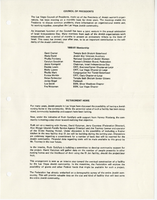Search the Special Collections and Archives Portal
Search Results
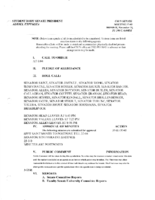
Meeting minutes for Consolidated Student Senate, University of Nevada, Las Vegas, November 13, 2006
Date
2006-11-13
Archival Collection
Description
Includes meeting agenda, with additional information about resolutions.
Text
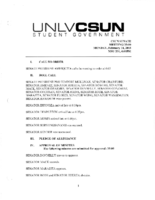
Meeting minutes for Consolidated Student Senate, University of Nevada, Las Vegas, February 14, 2005
Date
2005-02-14
Archival Collection
Description
Includes meeting minutes and agenda, along with additional information about proposals and the Rebel Yell operating policy and articles of incorporation.
Text

Meeting minutes for Consolidated Student Senate, University of Nevada, Las Vegas, November 17, 2003
Date
2003-11-17
Archival Collection
Description
Includes meeting minutes. CSUN Session 34 Meeting Minutes and Agendas.
Text
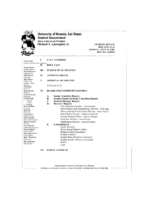
Meeting minutes for Consolidated Student Senate, University of Nevada, Las Vegas, July 14, 2003
Date
2003-07-14
Archival Collection
Description
Includes meeting agenda and mintues, along with additional information about memorandums, bylaws, and letters
Text
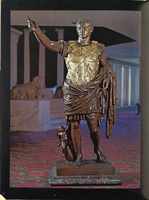
Hotel room brochure from Caesars Palace, circa 1969
Date
1968 to 1971
Archival Collection
Description
Bound booklet with concierge information for Caesars Palace. The guide provides entertainment and dining information about the resort and casino, including room service menus and a telephone directory.
Text
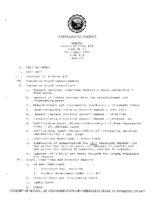
Meeting minutes for Consolidated Student Senate, University of Nevada, Las Vegas, August 09, 1983
Date
1983-08-09
Archival Collection
Description
Includes meeting agenda and minutes. CSUN Session 13 (Part 2) Meeting Minutes and Agendas.
Text
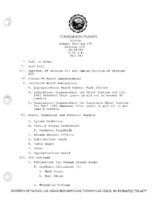
Meeting minutes for Consolidated Student Senate, University of Nevada, Las Vegas, June 28, 1983
Date
1983-06-28
Archival Collection
Description
Includes meeting agenda and minutes. CSUN Session 13 (Part 1) Meeting Minutes and Agendas.
Text

Meeting minutes for Consolidated Student Senate, University of Nevada, Las Vegas, August 10, 1983
Date
1983-08-10
Archival Collection
Description
Includes meeting agenda and minutes along with additional information about the violation.
Text
Pagination
Refine my results
Content Type
Creator or Contributor
Subject
Archival Collection
Digital Project
Resource Type
Year
Material Type
Place
Language
Records Classification

